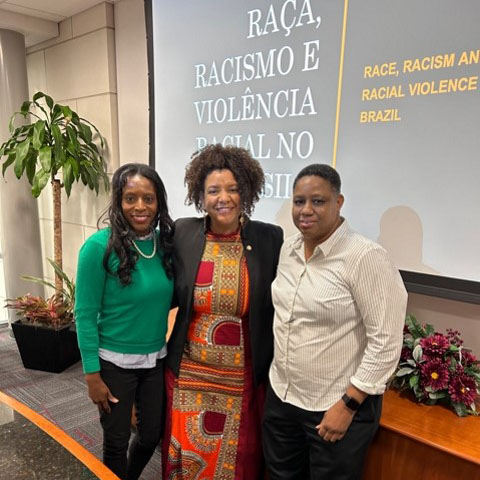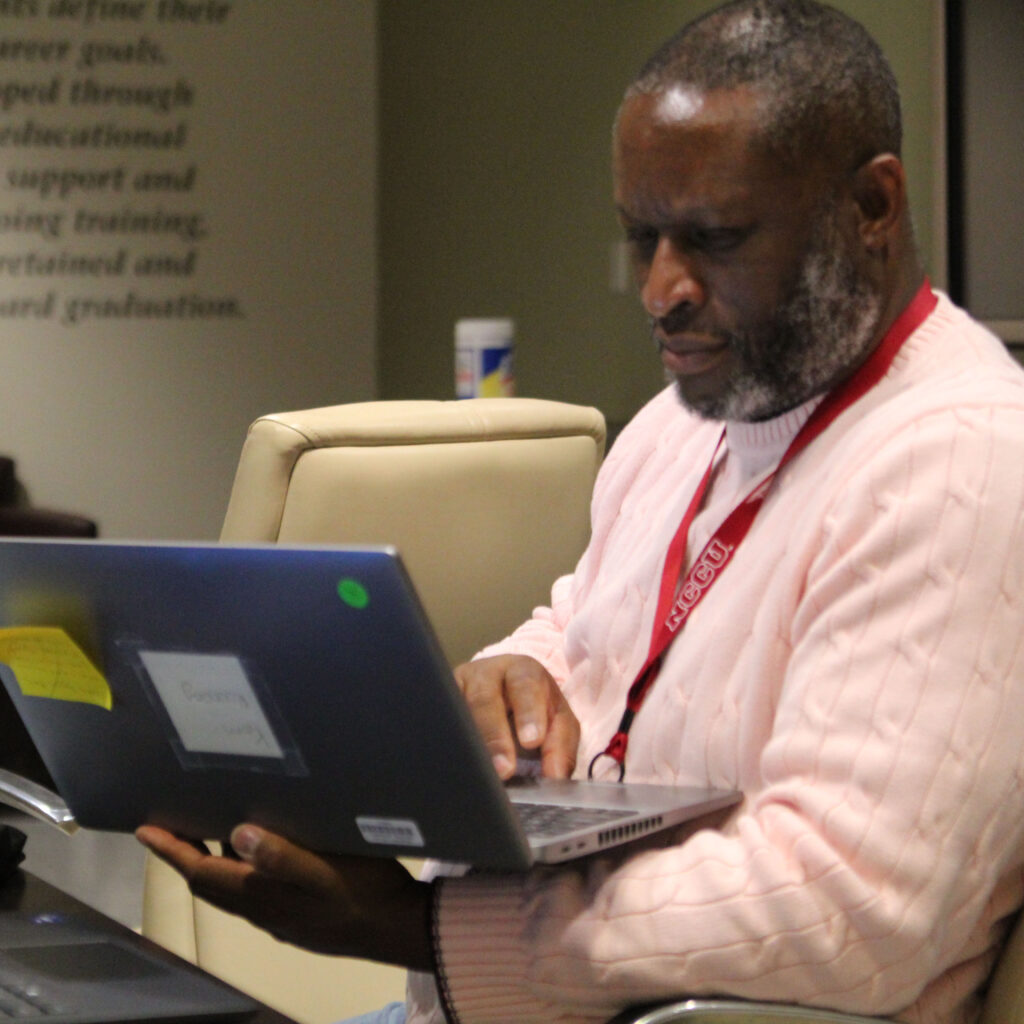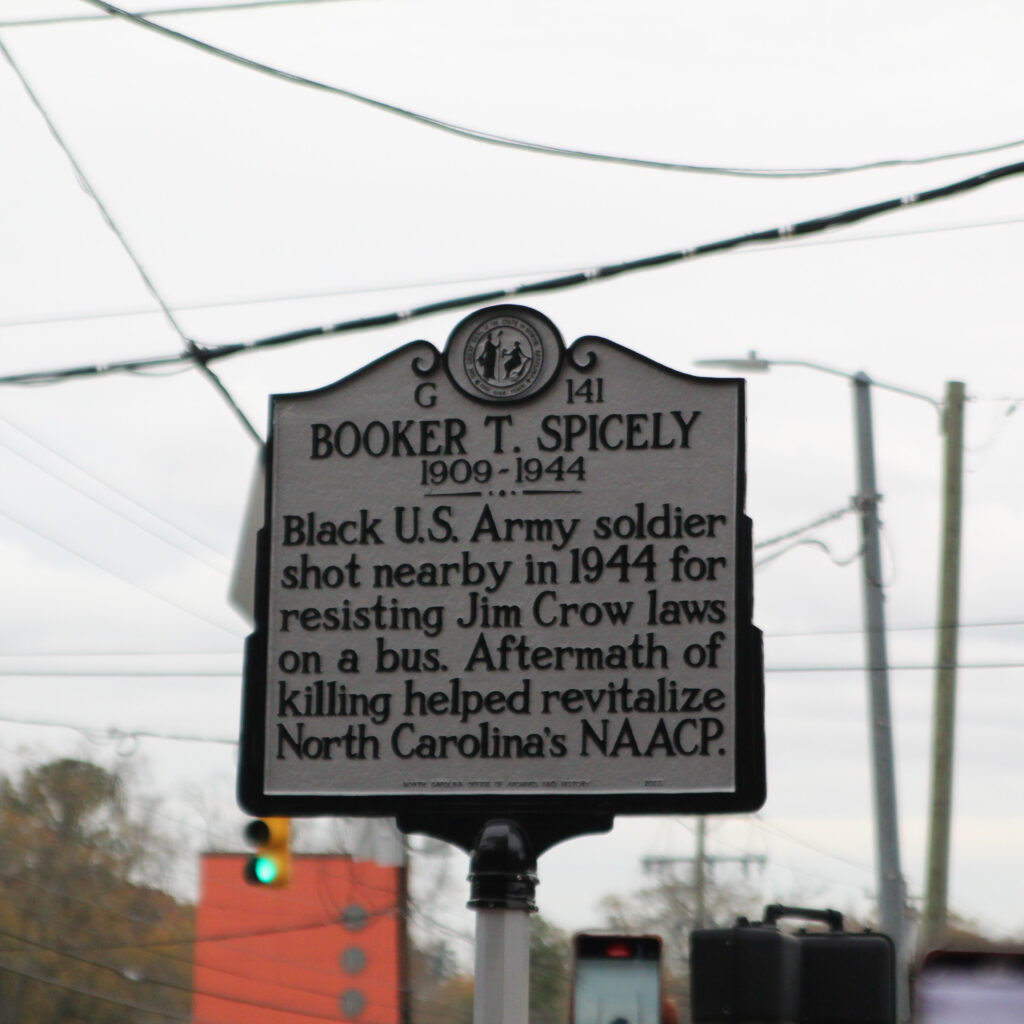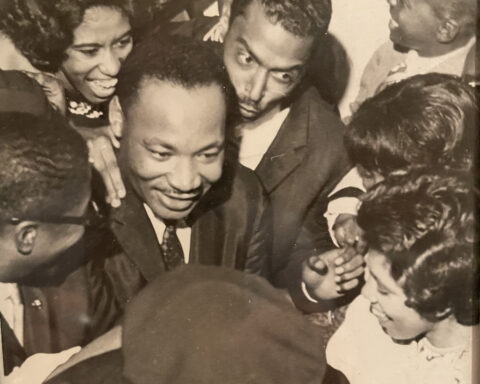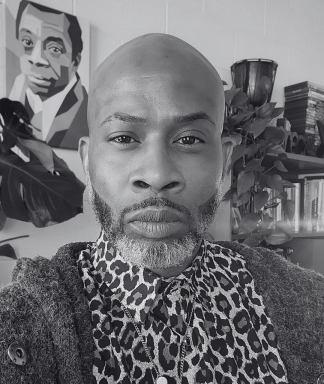While growing up in Kannapolis, N.C., Gladys Mitchell-Walthour became interested in Latin America because of her curiosity about the growing number of Latino immigrants moving into her town.
“I would meet people that were my complexion, or darker, speaking Spanish and I thought, ‘Wow this is interesting’,” Walthour said.
She later earned an undergraduate degree in political science and African and African-American studies from Duke University, a master’s degree in Public Policy from the University of Michigan, and a doctorate in Comparative Politics from the University of Chicago. Her dissertation for that degree was “Afro-Brazilian Political Behavior.”
Now, Mitchell-Walthour is a political science professor at N.C. Central University and the Dan T. Blue Endowed Chair specializing in Afro-Brazilian political behavior, racial group identity, and racial politics. The Dan T. Blue Endowed Chair is funded by Dan T. Blue, a current Senator in the N.C. General Assembly.

Mitchell-Walthour credits an Afro-Brazilian history and culture course she took while at Duke University for sparking her interest in Brazil. When she first became interested in Brazil, she began studying Portuguese, the national language, and went to Brazil to study intensively. She then worked with a Portuguese tutor in the states. Now, her research interests extend to advocacy, especially promoting social justice and positive change.
In her first single-authored work released in 2017, “The Politics of Blackness,” she examines racial identity and political behavior in contemporary Brazil.
She is also the co-editor of two collections of works examining these issues: “Race and the Politics of Knowledge of Production” and “Brazil’s New Racial Politics.”
Her most recent work, “The Politics of Survival,” published this year, compares how systems of domination work on female welfare recipients in Brazil and the USA.
According to her website, the study “argues [that these women] engage in the politics of survival as they sustain their families and communities through informal labor to supplement their benefits and through their engagement with electoral and informal politics.”
She also discusses the myth of racial democracy, a myth that maintains that racism doesn’t exist in Brazil because most Brazilians are mixed-race.
Additionally, she has published numerous articles in academic journals, including “The Politics of Skin Color” in the Review of Black Political Economy and “Black Group Identity and Vote Choice in Brazil” in Opinião Pública.
According to Zaria Hanchell, a political science sophomore in her fall Comparative Politics class, Mitchell-Walthour’s research experience contributes a lot to the class.
“It’s really interesting learning about Brazil in that class,” said Hanchell. “You can really tell that her research on Brazil really comes through in the class because you can tell that she really is an expert on that subject.”
Serving as the current Dan T. Blue Endowed Chair at NCCU, she said, allows her to see “the work in action.” As endowed chair, she is tasked with engaging the NCCU and Durham communities in the department’s work.
Last March, she organized the Dan T. Blue Symposium, a symposium that explored Black women and politics in Brazil and the USA. The symposium brought together students, NCCU and outside faculty, Brazilian activists, and community members.
This October Mitchell-Walthour organized a lecture entitled, “Confronting Religious Racism and Intolerance Through Legislation in Brazil.” The lecture was given by Reneta Souza, a State Deputy from Rio de Janeiro, who spoke to NCCU, Duke, and UNC Chapel Hill students and faculty.
She especially enjoys her work on these symposiums because they allow her “to merge the academic work with the advocacy and activist work because [the symposiums] bring together people … to think about issues together.”
She was also invited by John French, one of the directors of the Duke Bass Connections Program, a program that supports international research, to serve as a co-director on a trip to Brazil. As endowed chair, she was able to fund two students to travel with her. She described this experience as “a great joy.”
Outside of NCCU, Mitchell-Walthour is heavily involved in leadership roles at numerous organizations that fall in line with her research. From 2018 to 2020 she served as the president of the Brazil Studies Association, an international organization that promotes Brazilian studies in universities globally.
Outside of her academic career, Mitchell-Walthour serves as the current National Co-Coordinator of the United States Network for Democracy in Brazil, an organization that seeks to educate the U.S about the political state of Brazil and advocates for positive change. She is also the Co-Leader for Scholars Strategy Network.

